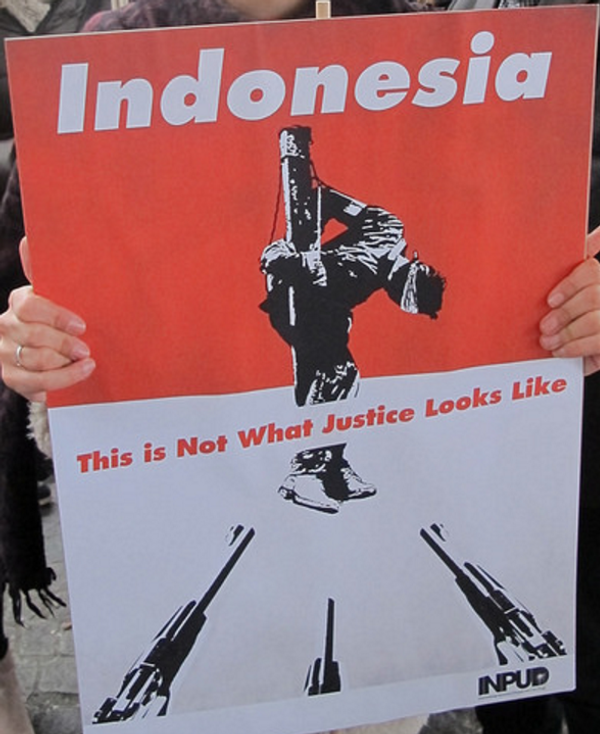Pour les femmes impliquées dans le commerce de la drogue, l’aide légale qui commence tôt
Les femmes pauvres et marginalisées sont vulnérables au risque d’être entraînées dans le commerce de la drogue. Le gouvernement Indonésien ignore les conditions qui provoquent l’implication de personnes ordinaires dans le trafique de drogue. Pour en savoir plus, en anglais, veuillez lire les informations ci-dessous.
Abonnez-vous à l'Alerte mensuelle de l'IDPC pour recevoir des informations relatives à la politique des drogues.
Rani Andriani was just 23 when she was sentenced to death for trafficking three-and-a-half kilograms of heroin. From a family of modest means in West Java, she had been a bright high school student and a dedicated daughter. Young, naïve, and under the financial stress that affects so many village families, she was lured by the false promises of a drug syndicate and became a drug mule.
After serving 15 years in prison for drug trafficking, Rani was executed in January 2015, along with five other drug offenders.
Poor and marginalized women like Rani are vulnerable to being sucked into the drug trade, usually as mules. Yet in its eagerness to address the drug problem, the Indonesian government ignores the conditions that trigger the involvement of everyday people in drug trafficking.
Click here to read the full article.
Keep up-to-date with drug policy developments by subscribing to the IDPC Monthly Alert.
